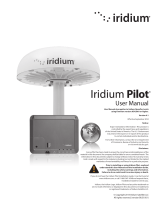
ii
GTN 650/750 Series SW V3.00 Upgrade Supplement 190- 01007-05 Rev A
4.4.3 TCAD9900BTrafcMenu....................................................... 23
4.4.3.1 TrafcAudio ........................................................................... 23
4.4.3.2 ShieldSetup ........................................................................... 24
4.4.3.3 ApproachMode ..................................................................... 25
4.5 TCAD9900BXOperation ...................................................................... 26
4.5.1 SelectLocalBarometricPressure ............................................. 26
4.5.2 SelectAltitudeFilter ................................................................ 27
4.5.3 TCAD9900BXTrafcMenu .................................................... 27
4.5.3.1 TrafcAudio ........................................................................... 28
4.5.3.2 ShieldSetup ........................................................................... 28
4.5.3.3 ApproachMode ..................................................................... 29
4.5.3.4 GroundMode ......................................................................... 29
5 Weather ................................................................................................30
5.1 GarminGWXRadarDescription(GTN7XXOnly) ................................... 30
5.1.1 PrinciplesofPulsedAirborneWeatherRadar ........................... 30
5.1.2 AntennaBeamIllumination .................................................... 31
5.1.3 RadarSignalAttenuation ........................................................ 32
5.1.4 RadarSignalReectivity ......................................................... 33
5.1.4.1 Precipitation ........................................................................... 33
5.1.4.2 GroundReturns ...................................................................... 34
5.1.4.3 AngleofIncidence .................................................................. 34
5.2 RadarOperatingDistance
(GTN 7XX Only) .............................................................. 35
5.2.1 MaximumPermissibleExposureLevel(MPEL)(GWX68) .......... 35
5.2.2 MaximumPermissibleExposureLevel(MPEL)(OtherRadars) ... 35
5.3 BasicRadarAntennaTiltSetup(GTN7XXOnly) ..................................... 36
5.4 RadarWeatherMappingandInterpretation
(GTN 7XX Only) ............................. 37
5.4.1 WeatherdisplayInterpretation ................................................ 37
5.4.2 Thunderstorms ....................................................................... 38
5.4.3 Tornadoes .............................................................................. 40
5.4.4 Hail ........................................................................................ 40
5.5 GWXRadarOperationinWeatherMode
(GTN 7XX Only)................................... 41
5.5.1 ViewingWeatherontheWeatherRadarPage ......................... 42
5.5.2 ConguringWeatherRadarPage ............................................ 43
5.5.3 VerticallyScanningaStormCell .............................................. 44
5.5.4 AdjustingtheAntennaTiltAngle ............................................. 45
5.5.5 AdjustingtheBearingLine ...................................................... 46
5.5.6 AdjustingGain ....................................................................... 47
5.5.7 SectorScan ............................................................................ 48





















